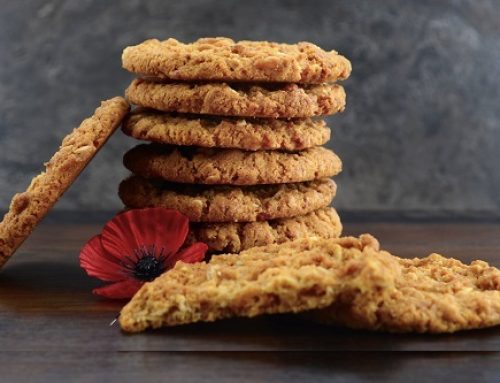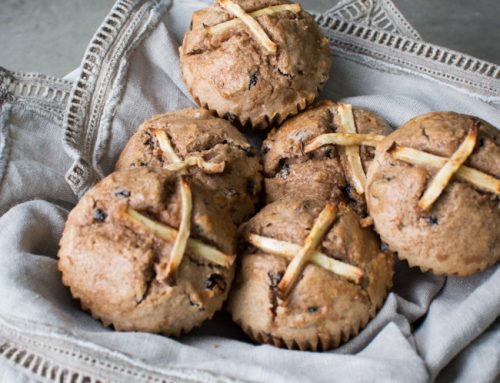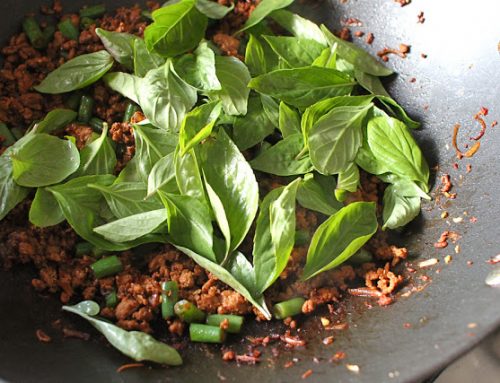I’m not a fan of littering – actually, it’s one of my pet hates. It infuriates me how someone can chuck their rubbish carelessly on the ground, when there is a bin just metres away. I mean, seriously, how lazy can a person be! I remember when Chris and I went to Bali, I was appalled at all the rubbish floating in the ocean. I was expecting beautiful, crystal-clear waters. I had dreamt about lolling in them during the weeks leading up to my holiday. But when we arrived, I was so disgusted of the polluted waters, that I didn’t even pop one toe into the famous Kuta beaches. I resolved once again to never litter my rubbish. And I thought I didn’t. Litter that is. But really I had been every day, for many, many years, in so many ways. One of these ways was in the bathroom as I washed my face and brushed my teeth.
Yep, I’d been littering microbeads. Teeny tiny bits of plastic going down, down the drain, and into the waterways.
When you read through the ingredients in the list in your bathroom items, one item you wouldn’t expect to see is plastic. However, a significant number of personal care and cosmetic products contain tiny particles of plastic, called microbeads. In fact, a tube of face wash can contain over 330,000 microbeads! When you consider that the average consumer is likely to be a daily user of microbead-containing products, that is A LOT of plastic that gets washed down the drain. Sometimes they’re added as an abrasive to get that deeper clean (such as in face wash and body scrubs to slough off dead skin and leaves us ‘glowing’), but sometimes they serve no purpose other than decoration (like those fancy, sparkly specs you might see in toothpaste). The listing of ‘polyethylene’ in the product ingredients is usually a giveaway that plastic microbeads are present, but sometimes this is listed as ‘HDPE’, for ‘high-density polyethylene’, or even ‘PEHD’
Why should anyone care about microbes? Turns out, these tiny scrubbers might make us feel fresh  and clean, but they’re doing serious damage to the environment and could potentially hurt our health as well. Microbeads in face washes and similar products are almost always smaller than one millimetre, and they tend not to be filtered out in sewage treatment—meaning they’re directly released into waterways. Just as plastic junk in the ocean is damaging to marine ecosystems, microplastics pose a particular problem. Released into bodies of water, microbeads absorb contaminants like polychlorinated biphenyls, or PCBs, and are eaten by marine organisms, from small invertebrates (like mussels) to giant whales. Because microbeads absorb PCBs, the marine creatures who consume them are getting a large dose of toxic chemicals along with their plastic appetisers, and these toxins tend to build up in the organism. PCBs have been linked to cancer in marine life, and other negative impacts on the immune system, reproductive system, nervous system, and endocrine system in animals.
and clean, but they’re doing serious damage to the environment and could potentially hurt our health as well. Microbeads in face washes and similar products are almost always smaller than one millimetre, and they tend not to be filtered out in sewage treatment—meaning they’re directly released into waterways. Just as plastic junk in the ocean is damaging to marine ecosystems, microplastics pose a particular problem. Released into bodies of water, microbeads absorb contaminants like polychlorinated biphenyls, or PCBs, and are eaten by marine organisms, from small invertebrates (like mussels) to giant whales. Because microbeads absorb PCBs, the marine creatures who consume them are getting a large dose of toxic chemicals along with their plastic appetisers, and these toxins tend to build up in the organism. PCBs have been linked to cancer in marine life, and other negative impacts on the immune system, reproductive system, nervous system, and endocrine system in animals.
But the damage doesn’t stop there. This cycle continues when humans consume these marine creatures. This means big implications for human health and food safety. BPA and other leached components used in plastics are thought to be endocrine-disrupting chemicals that have been connected to problems including heart disease, brain deterioration, type 2 diabetes, cancer, and obesity. Chronic exposure to BPA specifically has been linked to issues such as heart disease and diabetes.
When I learnt all this, there was no way I was going to buy commercial products containing hidden microbeads ever again. Actually, it got me pretty mad to think manufacturers added plastic to personal care products, just for decoration! I mean, I get why they might do it for an abrasive function, but as a decoration? Now that is just downright irresponsible.
I’ve been using a super delicious DIY honey and lavender face wash of late, and I can rinse it off and let it flush down the drain without any guilt of littering. If you’re coming along to my DIY Chemical-Free SKINCARE Workshop on Thur 29 Sept, 6:30pm @ Devonport Community House, you’ll be able  to make your own 100% guilt-free face wash to take home! The face wash is also 100% toxic-free. Unlike regular store-bought face washes which can dry out and irritate the skin, this honey and lavender face wash includes ingredients that clarify and tone the skin, and that are extra-gentle and help maintain the skin’s natural pH balance. Raw honey is a wonderful all-natural antibacterial, antimicrobial and antifungal that will not only help kill blemishes on the skin, but will also help to preserve the wash. Honey also has anti-aging and skin-repairing benefits. Lavender essential oil is also great for all skin types, and helps calm inflammation and eliminate bacteria, meaning it can really help clear up blemished skin. Orange essential oil is great for oily skin, decreasing wrinkles and brightening a dull complexion. It is antimicrobial, and is also well-known for its uplifting properties. this face-wash would be perfect to use in the morning to start your day off on a bright note! In saying that, however, the combination of lavender and orange have also been known to help with sleep, so this is a nice blend to use at the end of a long day, before bed 🙂
to make your own 100% guilt-free face wash to take home! The face wash is also 100% toxic-free. Unlike regular store-bought face washes which can dry out and irritate the skin, this honey and lavender face wash includes ingredients that clarify and tone the skin, and that are extra-gentle and help maintain the skin’s natural pH balance. Raw honey is a wonderful all-natural antibacterial, antimicrobial and antifungal that will not only help kill blemishes on the skin, but will also help to preserve the wash. Honey also has anti-aging and skin-repairing benefits. Lavender essential oil is also great for all skin types, and helps calm inflammation and eliminate bacteria, meaning it can really help clear up blemished skin. Orange essential oil is great for oily skin, decreasing wrinkles and brightening a dull complexion. It is antimicrobial, and is also well-known for its uplifting properties. this face-wash would be perfect to use in the morning to start your day off on a bright note! In saying that, however, the combination of lavender and orange have also been known to help with sleep, so this is a nice blend to use at the end of a long day, before bed 🙂
*****DIY Chemical-Free SKINCARE Workshop******
If you’d like to learn how to use essential oils to make your own natural, toxic-free skin care products, come along to our next workshop! If you’d like to attend but can’t make the date, please let us know and we can organise another workshop at a time that suits best.
When: Thur 29 Sept, 6:30pm-8:30pm
Where: Devonport Community House (10 Morris Street)
Cost: $30 (to make and take five skincare products)
During the workshop you will make:
Honey Lavender Face Wash – 250ml
Anti-Wrinkle Serum – 25ml
Skin Perfecting Face Cream – 120ml
Lemongrass & Ginger Salt Scrub – 250ml
Choc Mint Lip Balm – 10ml
All of the products will be made from natural ingredients, including 100% pure, therapeutic-grade Young Living essential oils. All ingredients and containers for the products will be supplied. You won’t believe how quick and easy it is to make your own skincare products! And it’s also super cheap – it is literally only $30 to make five high-quality, natural products, including the cost of the containers.
As spaces are limited, we would appreciate that you book in and pay prior to the workshop.
Looking forward to seeing you there!
Filly








Leave A Comment